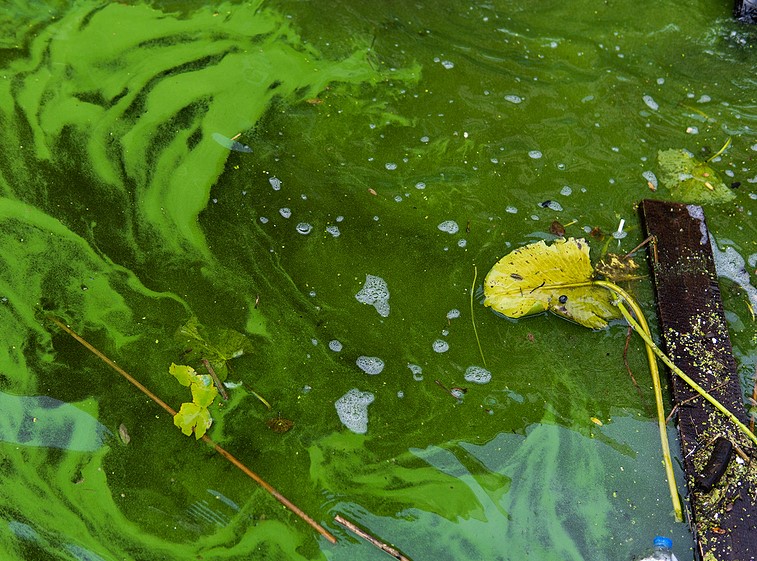News
Pollution Penalties For Water Firms Increase To £250 Million
At the start of the year, the Environmental Audit Committee issued a warning that chronic underinvestment and failures in monitoring, governance and enforcement have resulted in poor water quality in rivers, lakes and streams around England.
It was found that just 14 per cent of rivers met good ecological status, being contaminated by a dangerous chemical cocktail made up of pollution from agriculture, sewage, roads and single-use plastics… and, in fact, not one river in the country has been given a clean bill of health where chemical contamination is concerned.
One of the big problems facing the nation’s waterways is the impact of wastewater from sewer overflows and sewage treatment works.
With 36 per cent of water bodies prevented from achieving good ecological status because of this particular issue, the Committee voiced its alarm at just how extensive sewage discharge in England actually is, as well as misreporting and large spills by water suppliers.
It appears that these suppliers are dumping untreated or partially treated sewage on a regular basis, often in breach of their permit terms that only allow such procedures in exceptional circumstances.
Furthermore, citizen science analysis suggests that the real number of discharges may be far higher than those reported to the Environment Agency by water firms.
Philip Dunne, committee chairman, said at the time: “Rivers are the arteries of nature and must be protected. Our inquiry has uncovered multiple failures in the monitoring, governance and enforcement on water quality. For too long, the government, regulators and the water industry have allowed a Victorian sewerage system to buckle under increasing pressure.
“Today, we are calling for these relevant bodies to come together and develop a system fit for the future. Monitoring regimes need to be reviewed, enforcement needs to be ramped up, and even public awareness needs boosting on what can and cannot be poured down drains or flushed down the toilet.
“So many emerging pollutants are being missed by inadequate and insufficient monitoring, and court actions against polluters have fallen dramatically.”
Despite the fact that sewage discharges and sewer overflows have been hitting the headlines with increasing frequency over the last few months, river testing throughout England has been found to have fallen dramatically, down from 100,000 samples a year in 2021 to 41,519 in 2021.
This suggests that water suppliers may well be taking advantage of this lack of scrutiny to continue with their potentially illegal and certainly destructive discharge practices… which is why it’s such welcome news that the environment secretary has just announced that civil penalties will be raised from £250,000 to up to £250 million for water companies found to be polluting the environment.
Currently, if suppliers don’t uphold the law or their practices lead to environmental harm, the Environment Agency is able to pursue criminal and civil prosecutions.
Criminal cases can be both lengthy and expensive, although fines handed out by the courts are unlimited. Civil sanctions can provide quicker methods of enforcement and these can be imposed directly by the Agency, rather than through the courts, so the penalty increase could prove to be a significant deterrent for many.
This comes as part of the government’s plans to drive suppliers on to make investments in infrastructure to minimise pollution incidents and safeguard water resources for future generations.
In 2021, water companies caused 62 serious pollution incidents, up from the 44 seen the year before… which suggests that this latest development is nothing short of necessary if suppliers are to be brought into line.
Last month (September), environment secretary Ranil Jayawardena urged water companies to write to him, providing detailed plans for improving their infrastructure and environmental performance. Responses have been received from all suppliers in England and are currently being reviewed to help increase accountability.
Mr Jayawardena said: “I have been clear that if water companies don’t do what is expected, there will be consequences. Bigger financial penalties will act as a greater deterrent and push water companies to do more and faster, when it comes to investing in infrastructure and improving the quality of our water.
“This 1,000-fold increase sends a clear signal that we want clean rivers and coastlines, and that the duty falls to the water companies to deliver – the polluter must pay.”
Sir James Bevan, chief executive of the Environment Agency, made further comments on the matter, saying that criminal prosecutions against suppliers have secured fines of more than £138 million since 2015… and one record fine of £90 million was recently handed to Southern Water for corporate environmental crime.
This move comes after the Department for Food, Environment and Rural Affairs published the storm overflows discharge reduction plan back in August. This sets out the targets that water companies will need to achieve, such as improving all storm overflows discharging into or near designated bathing water sites by 2035.
In addition, firms will need to improve 75 per cent of overflows discharging into high priority nature sites and, by 2050, this will apply to all remaining storm overflows covered by these targets, regardless of location.
Those overflows that are currently causing the most environmental harm will be tackled first so as to make significant progress as quickly as possible. Water firms will also be expected to include nature-based solutions in their planning, as well as carbon reduction and biodiversity net gain.
It will certainly be interesting to see whether this penalty increase has an impact on water management on the part of suppliers around England.
Given that the most recent annual report from the Environment Agency, published in July of this year, revealed that the performance of nine suppliers fell to the lowest level ever seen, this move couldn’t come at a more important time.
Want to find out about water efficiency? Get in touch with H2o Building Services today.
